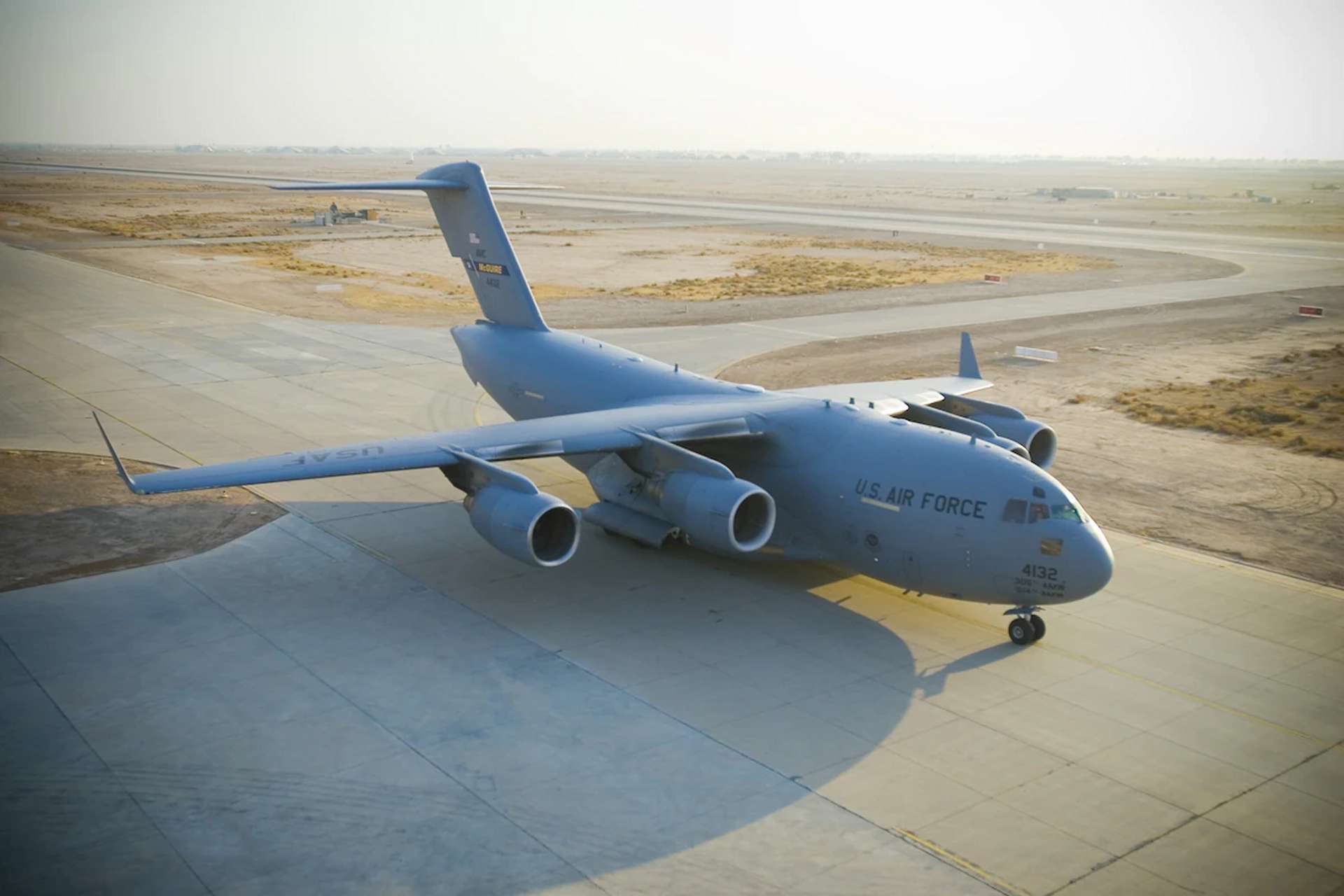US DoD Awards Boeing Major Maintenance Contract for C-17 Globemaster III Transport Aircraft Fleet

{loadposition bannertop}
{loadposition sidebarpub}
On October 2, 2024, Boeing was awarded a significant $1.68 billion contract modification by the U.S. Department of Defense, aimed at extending the support services for the C-17 Globemaster III until 2027. This contract, part of the Foreign Military Sales (FMS) program, will cover not only the needs of the U.S. Air Force but also those of several international allies.Follow Army Recognition on Google News at this link
Boeing C-17 Globemaster III Transport Aircraft (Picture source: US DoD)
The C-17 Globemaster III, a military transport aircraft essential for missions such as troop transport, cargo deployment, and humanitarian operations, is used by partner nations such as Australia, Canada, India, Kuwait, Qatar, the United Arab Emirates, the United Kingdom, and NATO. This contract extension will ensure the maintenance and modernization of these fleets within the framework of global support through October 31, 2027.
In 2021, the Royal Air Force (RAF) of the United Kingdom had already invested nearly £400 million to strengthen its aerial capabilities, particularly for the C-17 and CH-47 Chinook helicopter fleets. Of these funds, £324 million were specifically allocated to modernize the C-17’s onboard systems, through a contract with the U.S. Air Force.
In the same vein of modernization, 2023 saw the signing of a $5.5 billion contract modification by Pratt & Whitney, a subsidiary of RTX, for the support of the F117 engines powering the C-17s. This contract, valid through 2027, aims to optimize engine performance while improving durability and cost efficiency.
The support work planned under this agreement will be conducted at several sites in the United States, including Charleston, South Carolina, Long Beach, California, and Robins Air Force Base in Georgia, as well as undisclosed international locations to support C-17 operators worldwide.
The C-17 Globemaster III is a military transport aircraft designed to transport troops and various cargo types to primary bases around the world. It is distinguished by an impressive loading capacity of 45,360 kilograms (100,000 pounds), which allows it to carry vehicles, heavy equipment, or humanitarian supplies in large quantities. With a range of over 8,334 kilometers (4,500 nautical miles), it can perform long flights without refueling, making it essential for rapid deployment missions or supply operations in remote areas.
One of the C-17’s key strengths is its ability to land on short and narrow runways, thanks to its steep descent capabilities and slow approach speed. These features allow it to operate in underdeveloped airports or isolated airstrips, often inaccessible to other aircraft of its size. This versatility makes it a crucial tool for missions in remote regions, war zones, or emergency humanitarian interventions where airport infrastructure is limited.

{loadposition bannertop}
{loadposition sidebarpub}
On October 2, 2024, Boeing was awarded a significant $1.68 billion contract modification by the U.S. Department of Defense, aimed at extending the support services for the C-17 Globemaster III until 2027. This contract, part of the Foreign Military Sales (FMS) program, will cover not only the needs of the U.S. Air Force but also those of several international allies.
Boeing C-17 Globemaster III Transport Aircraft (Picture source: US DoD)
The C-17 Globemaster III, a military transport aircraft essential for missions such as troop transport, cargo deployment, and humanitarian operations, is used by partner nations such as Australia, Canada, India, Kuwait, Qatar, the United Arab Emirates, the United Kingdom, and NATO. This contract extension will ensure the maintenance and modernization of these fleets within the framework of global support through October 31, 2027.
In 2021, the Royal Air Force (RAF) of the United Kingdom had already invested nearly £400 million to strengthen its aerial capabilities, particularly for the C-17 and CH-47 Chinook helicopter fleets. Of these funds, £324 million were specifically allocated to modernize the C-17’s onboard systems, through a contract with the U.S. Air Force.
In the same vein of modernization, 2023 saw the signing of a $5.5 billion contract modification by Pratt & Whitney, a subsidiary of RTX, for the support of the F117 engines powering the C-17s. This contract, valid through 2027, aims to optimize engine performance while improving durability and cost efficiency.
The support work planned under this agreement will be conducted at several sites in the United States, including Charleston, South Carolina, Long Beach, California, and Robins Air Force Base in Georgia, as well as undisclosed international locations to support C-17 operators worldwide.
The C-17 Globemaster III is a military transport aircraft designed to transport troops and various cargo types to primary bases around the world. It is distinguished by an impressive loading capacity of 45,360 kilograms (100,000 pounds), which allows it to carry vehicles, heavy equipment, or humanitarian supplies in large quantities. With a range of over 8,334 kilometers (4,500 nautical miles), it can perform long flights without refueling, making it essential for rapid deployment missions or supply operations in remote areas.
One of the C-17’s key strengths is its ability to land on short and narrow runways, thanks to its steep descent capabilities and slow approach speed. These features allow it to operate in underdeveloped airports or isolated airstrips, often inaccessible to other aircraft of its size. This versatility makes it a crucial tool for missions in remote regions, war zones, or emergency humanitarian interventions where airport infrastructure is limited.




